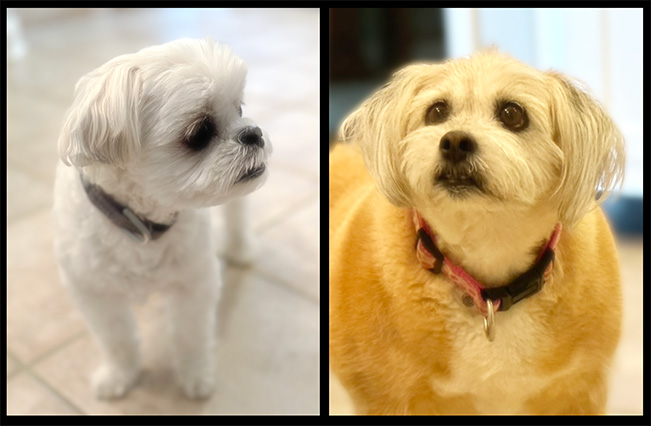We often take walks with our two dogs, Ollie and Louis. Depending on the day, one or more cats may tag along, too.
They are all full of wonder, constantly observing their environment as we go along. Exploring. Discovering. Seeking. And seeing.
They are not dull, witless creatures. No.
They are smart. Keen. Sharp. Perceptive. They know things I do not know. And you too, probably.
Of course, this doesn’t stop with cats and dogs. In fact, most other animals display unique levels of intelligence.
Take elephants, for example. They can paint. Yes, indeed. Elephant art has been a sensation for many years.
To get them started, trainers will teach the elephants how. They show them how to hold a brush with their trunks and how to make strokes on a canvas. But that’s where it ends. From that point on, those trainers encourage the elephants to explore their own artistic domains.
But here is the big question. Does this artwork represent a form of self-expression? Could it help determine if elephants view the world with humanlike consciousness?
Then, taking this one step further, what about self-recognition or self-awareness in animals? Do they know who they are?
Well. My short answer is, “Of course they do.”
However, scientists have been using “mirror testing” as a way to understand animal cognition.
What is a mirror test, exactly?
The “mirror self-recognition (MSR) test” or “mark test” is a classic test in this area. It involves placing a colored mark on an animal’s body, then showing the animal the reflection of their marked body in a mirror, and observing the animal’s reaction.
If the animal tries to remove the colored tag or mark from their body, the mirror test shows they recognize their own reflection.
Or something along those lines.
“Self-recognition” is often considered a sign of self-awareness. And, of course, when we are self-aware, we are capable of a state that can denote introspection, personal identity, and consciousness. The scientists “measure” this in terms of “humanlike” levels of consciousness.
Babies, human babies, become self-aware once they have the cognitive ability to recognize their faces in a mirror. Human children identify themselves in the mirror test around 18 months of age. Here’s looking at you, kid.
In the animal world, we may all guess that smart bonobos or dolphins, would pass the test. But the list is growing of those animals who were tested and then passed the mirror test.
These animals have passed mirror tests in at least two separate studies without prior training:
Bottlenose dolphins (Tursiops truncatus)
Bonobos (Pan paniscus)
Chimpanzees (Pan troglodytes)
Cleaner wrasse (Labroides dimidiatus)
Orangutans (Pongo pygmaeus)
Asian elephants (Elephas maximus)
Clark’s nutcracker (Nucifraga columbiana)
Crows (Corvus brachyrhynchos)
Domestic dogs (Canis familiaris)
Eurasian magpies (Pica pica)
Garter snakes (Thamnophis sirtalis)
Indian house crows (Corvus splendens)
Orcas (Orcinus orca)
Pigeons (Columba livia)
Rhesus macaque (Macaca mulatta)
Three species of ants: Myrmica sabuleti, Myrmica rubra and Myrmica ruginodis
Western gorillas (Gorilla gorilla)
Another surprising test was done on the “cleaner fish.” In 2019, the cleaner fish passed a mark test. This tiny fish exhibited a scraping behavior when it saw in its reflection a colored tag on its body.
The scientists can dice this up any way they want to. There has been speculation about the “validity” of these tests, especially when they find some lowly “cleaner” fish noticing itself.
But I say, we humans are dull. We do not understand the level of intelligence that animals are operating on. What is important to us is not important to them. They don’t wish to get rich and acquire things like nice cars or diamond rings. They want to live. To eat. To find shelter. They just want to “be.” Beings. Not Human Beings. Animal Beings.
They know who they are. And they know why they are here.
They know how to “be.”
And animals do this way better than most humans. In that way, they are much smarter than us.
”””’
The life of inner peace, being harmonious and without stress, is the easiest type of existence.
– Norman Vincent Peale
”””’
As far as we can discern, the sole purpose of human existence is to kindle a light in the darkness of mere being.
– Carl Jung
”””’
The universe is not indifferent to our existence – it depends on it.
– Stephen Hawking
”””’
They know. They see, and they know. Woof. Growl.
